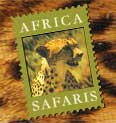Information on Zimbabwe
Zimbabwe [meaning “the house of stone”, named after the country’s ancient ruins] is most famous for the Victoria Falls, one of Africa’s most thrilling spectacles and the world’s largest mass of falling water at almost 2km wide.
Zimbabwe is surrounded by Botswana, South Africa, Mozambique, and Zambia. At 900m above sea level, Zimbabwe’s climate is mild and largely tropical. The great Zambezi River, located in the northern frontier, is where the most impressive wildlife sanctuaries and dramatic landscapes lie. Twelve percent of Zimbabwe is set aside for conservation; the biggest conservation area is the nearby Hwange National Park, with the greatest concentration of game of all parks in Zimbabwe. Over 400 bird species and 100 animal species are to be found. Zimbabwe offers fishing, water-skiing and boating on the man-made Lake Kariba, hiking in the rolling Eastern Highlands and walking through the balancing boulders of the Matobos.
Basic Facts on Travel to Zimbabwe:
Full Name: Republic of Zimbabwe (formerly Rhodesia)
Capital: Harare
Independence: 18 April 1980
Time: GMT +2 hours
Population: 11,163,160 (estimated July 1999)
Area: 390 580km2 (386 670km² land; 3 910km² water)
Currency: Zimbabwe Dollar (Z$)
President: Robert Gabriel Mugabe (since 31 December 1987)
Communication
Major hotels and businesses have a fax service. Lodges in the more remote areas of Zimbabwe communicate via two-way radio. The international dialing code for calling into Zimbabwe is +263. The international dialing code when calling out from Zimbabwe is 110. A direct international dialing service is available from the major hotels in Zimbabwe.
Electricity
Electricity is supplied at 220/240 volts AC. Outlets are 13 amp type [3-pin].
Language
English is the official language of Zimbabwe, although it is spoken by the business and upper class. Local languages include Shona and Ndebele.
Culture
The Shona make up majority of the population in Zimbabwe and the Ndebele are the minority.
Landscape:
Landscape of the plateau is bush, dotted with kopjes (rocky outcrops). The scenic Eastern Highlands are the mountainous region.
CLIMATE:
Summer: October to April.
Hot and generally sunny in the morning with possible afternoon thunderstorms. Daytime temperatures can rise to 30ºC (86ºF) and night temperatures drop to around 14ºC (57ºF) to 16ºC (61ºF). The temperatures given are those for the main centres but it is considerably warmer all year round in the low-lying areas such as Kariba, Victoria Falls, and the Zambezi Valley.
The rainy season runs from November to March, although the Eastern Highlands are damp for most of the year.
Winter: May to September.
Winter days are dry, sunny and cool to warm while evening temperatures drop sharply.
Daytime temperatures generally reach 20ºC(68ºF) and can drop to as low as 5ºC(41ºF) at night. Please note: despite the season during which you travel, please carry some warm clothing with you, it may come handy, perhaps for the chilly evenings,
When to travel
Zimbabwe is a year round destination.
For white water rafting, it is most exciting when the Zambezi waters are low, generally from August to December. Best botanical months to visit the famous Vumba Botanical Gardens are December to May when the vegetation is lush and green, and also when most plants are in flower. Zimbabwe’s popularity as a destination is gaining in leaps and bounds to the extent that seasonal differences are not as marked as in previous years. Traditionally, however, peak season is from July to October and middle season is from May to June. Note that availability is at a premium during these seasons, so you will need to book in advance.
Health Requirements and Services:
Health Requirements:
You will have to get malaria prophylactics before entering Zimbabwe. When purchasing these, tell your doctor or pharmacist which areas in Zimbabwe you intend visiting. Start your course at least 24 hours before entering Zimbabwe and continue taking the pills for six weeks after leaving the country. If you suffer from side effects, try taking your malaria prophylactics at night after dinner. Precautionary measures that you can take to prevent contact with mosquitoes are: sleeping under a bed net or in a room/tent with mosquito proofing; spraying your accommodation with insecticide [most hotels do this prior to the guest arrival]; making use of a mosquito-repelling lotion or stick; and wearing long-sleeved clothing, long trousers and socks when outside at night.
Any person entering Zimbabwe from, or via, a yellow fever or cholera-infected area must be in possession of a valid International Certificate of Vaccination against yellow fever and/or cholera. Tetanus immunization is recommended. Medical services within Harare and Bulawayo are very good. It is wise to bring with you any medicines which you may require. Medical insurance is strongly recommended.
Travel Insurance:
We strongly recommend that you take out travel insurance, which includes curtailment and cancellation cover, as well as medical cover, upon confirming your booking.
|


